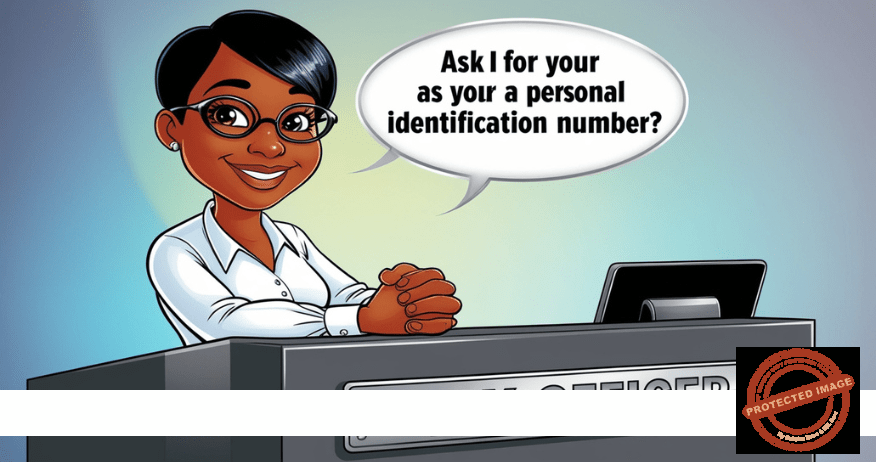There are many transactions that require a personal identification number – PIN in Kenya. Some of the problems that afflict tax collection in Kenya are tax evasion and tax avoidance. The government is using the PIN to minimize the two incidences.
What is a PIN?
Personal Identification Number, or as it is popularly known, PIN, is a computer-generated number issued by the Kenya Revenue Authority (KRA) to every taxpayer in Kenya. The PIN is the number that allows a person to pay tax, a person cannot pay tax without a PIN.
Every individual ‘who accrues or derives income in Kenya‘ is expected to get a PIN. This is irrespective of whether the individual is a Kenyan citizen or not. To register for a PIN, a person should have attained the age of 18 years and have acquired a National Identity card (ID). For non-Kenyans, a work permit is required which enables issuance of an Alien card.
Equally, all non-individual persons that accrue or derive income in Kenya are expected to register for tax and are issued with a PIN. There most important document that is required is registration certificate.
For example, limited liability companies they require a certificate of incorporation and, memorandum and articles of association. In the Kenyan tax, the term person is used to refer to individual and non-individual taxpayers.
Failure to register for PIN is an offence liable to a fine. For example, employing any person who does not have a PIN is an offence liable to a current fine of kshs 2,000 per every month the person is paid without a PIN. KRA has powers to allocate a PIN to any person who has failed to do so. No person is exempted from having a PIN in Kenya.
The challenge
Tax is one of the most important sources of government revenue to service the national budget. However, each year, there is a budget deficit that is funded by international donation and government borrowings from the domestic and international markets. The interest in the debts is too expensive and the timing of the loan repayments is crippling government operations.
Hence, there is a need to increase and improve domestic tax revenue mobilization since tax money is the cheapest source for the government – there are no interests and no repayment timeframes. However, there are inherent problems in domestic tax mobilization among them, including tax evasion and tax avoidance. These are world-wide problems, not to Kenya.
Consolidation of the taxpayer’s financial data is one of the proposed solutions. The Kenyan government has put in place several tax reform initiatives, one of which is the consolidation of taxpayer’s financial data in attempts to minimize tax evasion and tax avoidance. Hence, the use of Personal Identification Number (PIN) has been made a requirement in many transactions in the country.
Why use a PIN?
It is easier to consolidate a person’s financial data using a unique number whose generation is restricted. By making the use of the PIN mandatory, it is easier to track a person’s financial expenditure and compare it with their tax payments.
Though the system requires heavy use of technology, it is envisaged that at the end of the day, the KRA will be able to track a person’s financial expenditure, especially with the liking of the transactions to i-Tax platform. This will probably go a long way in minimizing tax evasion and tax avoidance in Kenya.
Where PIN is required?
According to the Tax Procedures Act (2015), First Schedule [Section 12], the following are some of the transactions that the government requires that PIN be presented in Kenya.
Some of the transactions that require the use of the PIN in Kenya include:
- Registration of titles (land, buildings, other properties, etc.)
- Stamping of instruments.
- Approval of development plans (for buildings, roads, etc.)
- Payment of water deposits (in county and national governments, water boards, etc.)
- Registration of motor vehicles (motorcycles, saloons, pickup trucks and trucks, trailers, tractors, etc.)
- Transfer of motor vehicles (motorcycles, saloons, pickup trucks and trucks, trailers, tractors, etc.)
- Licensing of motor vehicles (motorcycles, saloons, pickup trucks and trucks, trailers, tractors, etc.)
- Registration of business names (by individuals, sole proprietorships, partnerships, etc.)
- Registration of companies (private, public etc.)
- Underwriting of insurance policies.
- Trade licensing.
- Importation of goods.
- Customs clearing and forwarding.
- Payment of deposits for power connections (for residential buildings, commercial buildings, etc.)
- All contracts for supply of goods and services to government ministries and public bodies (letters of purchase, tenders, etc.)
- Opening accounts with financial institutions and investments banks (personal and corporate accounts, current, savings, investments accounts etc.)
This list is not exhaustive. Other transactions are occasionally included, and the list is expanding.
There are also private organizations that require the PIN. Such organizations as customers and clients, some schools, insurance companies, religious organizations etc. require the use of a PIN.
Conclusion
As we move into the future, more transactions will require the use of the PIN in Kenya. Make sure you consult the KRA website for the latest inclusions.
Feel free to send us questions or topics on tax and investments in Kenya that you would wish to be covered in this website.
Disclaimer
This post is for general overview and guidance and does not in any way amount to professional advice. Hence, www.taxkenya.com, its owner or associates do not take any responsibility for results of any action taken on the basis of the information in this post or for any errors or omissions. Kenyan taxpayers must always rely on the most current information from the KRA. The tax industry in Kenya is very dynamic.




